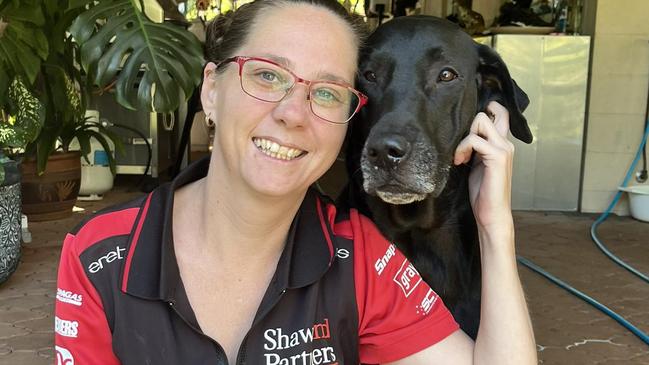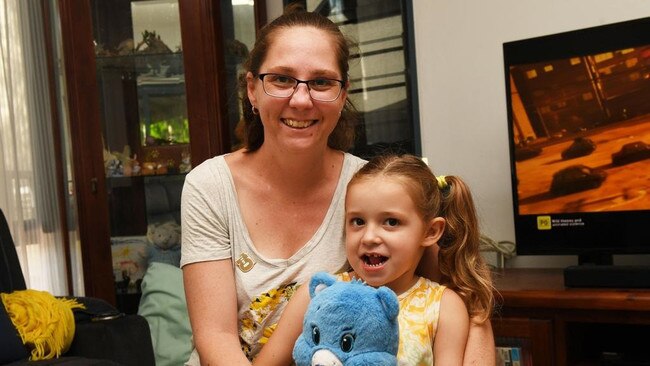Libby Schoch: Why Palmerston public servant needs this pelvic pain clinic to stay the course
A Palmerston woman says she hopes Commonwealth funding will support the Territory’s only dedicated pelvic pain clinic, after decades of her life were gobbled up by a severe health battle.

Northern Territory
Don't miss out on the headlines from Northern Territory. Followed categories will be added to My News.
A Palmerston woman who is sharing her decades-long endometriosis hell says she hopes Commonwealth funding to support the Territory’s only dedicated pelvic pain clinic, which opened last year, will be extended beyond its stipulated four-year period.
Public servant Libby Schoch, the NT co-ordinator of Endometriosis Australia, said she first knew something was not right with her body as teenager.
“It was a confusing time because I knew I was different to other teens going through [menstruation],” she said.
“I felt a bit like, ‘what’s wrong with me?’.
“The doctors just put me on the pill.”
Until she got her first laparoscopy at the age of 22, in 2007, she felt “dismissed” by medical staff who did not take her excruciating pain seriously.
“I felt like I was being a hypochondriac,” Ms Schoch said.
While it was a “relief” to finally have diagnosis, she said it “didn’t change anything” for her due to a lack of support within the medical profession.
“I went on for 10 years trying to have a baby, that was the doctor’s advice for me, but it was impossible,” Ms Schoch said.

“I had years and years and years of incredible pain, irregular cycles that I couldn’t understand, bleeding from my bowels as well.
“I somehow got pregnant in 2014, but that led to more drama and aggravated everything.
“Life was unbearable.
“I was constantly on heavy painkillers and suffered from depression and anxiety.”
Life improved somewhat when she finally made contact with Endometriosis Australia and flew to Queensland for “top quality care”.
Doctors discovered she had stage 4 endometriosis – large cysts on one or both ovaries, dense adhesions (bands of tissue sticking organs together) and deep implants (cells spreading outside the uterus) – and Ms Schoch went under the knife.
The surgery eased the pressure temporarily, but after a subsequent period lasted for 12 months, she underwent a full hysterectomy.
“I still have bouts of chronic pain but I went through the pain clinic at the Royal Darwin Hospital and learnt to live with pain, what pain was, and the science behind it,” she said.
Ms Schoch said she was now eagerly awaiting her first appointment with Darwin’s only pelvic pain clinic, located at Coconut Grove’s Northside Health.
There, she will have access to a nurse, a pelvic physiotherapist, a GP “who has that understanding of pelvic pain as that’s very hard to find,” and psychology.
The clinic, which opened last year, was one of 22 nationally funded by the federal Labor government for four years as an election commitment.
Ms Schoch urged the Commonwealth to continue funding the clinics on a full-time basis after the trial period lapses in 2027.
According to figures collated by Endometriosis Australia, it takes about 6.5 years on average for women to receive their diagnosis.
The condition effects one-in-seven women. The 2021 census recorded there were 9382 women living with the condition in Darwin alone.
With March being Endometriosis Awareness Month, Endometriosis Australia is calling on Darwin locals to raise funds and awareness for the condition by hosting their own high tea fundraising event.
All funds raised will help the organisation continue raising awareness, educating and supporting research for endometriosis.
NewsCorp Australia is campaigning for longer, Medicare-funded consultations for endometriosis diagnosis and treatment - we want women to be able to get the help they need, no matter where they live in Australia.
You can sign the petition here.





